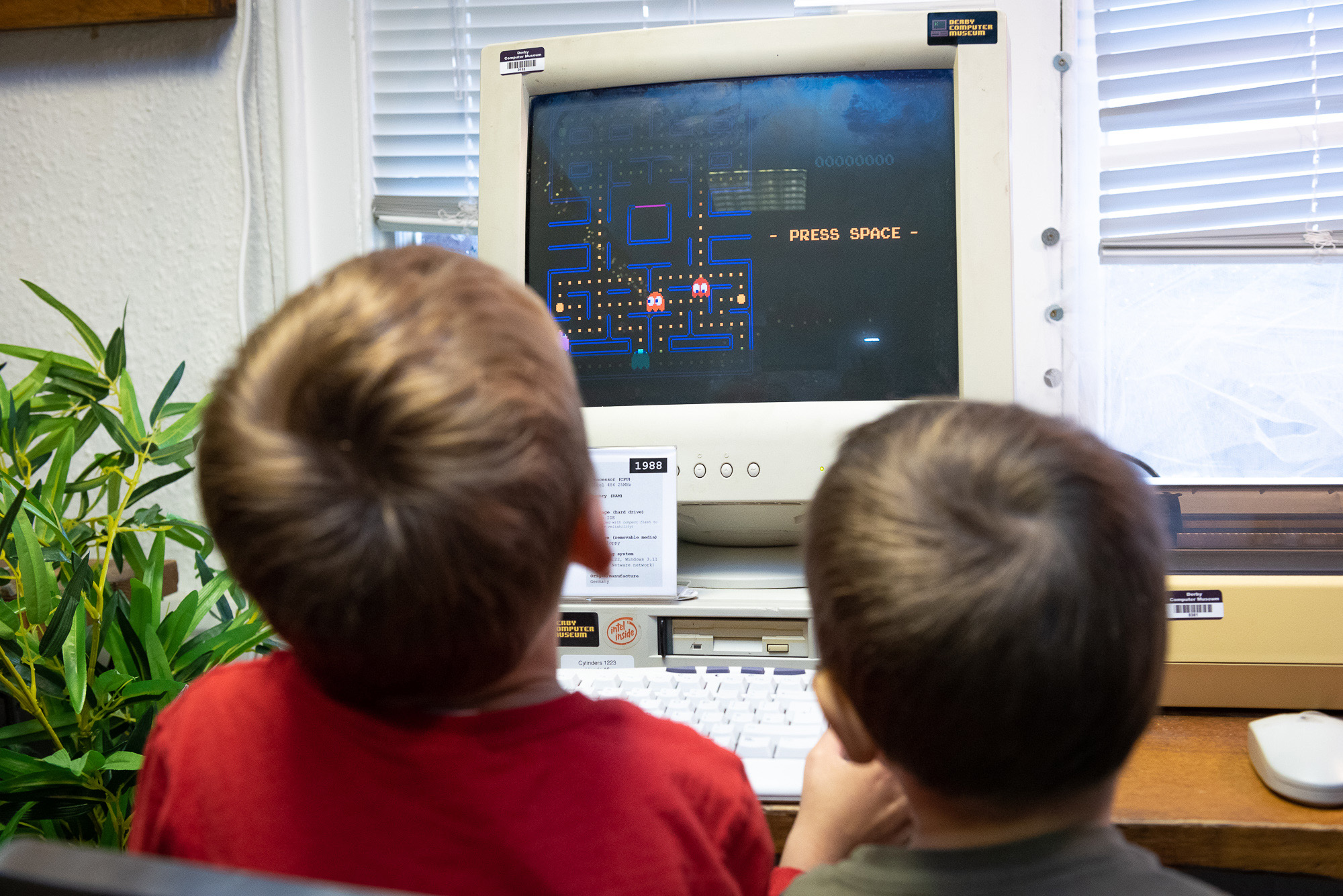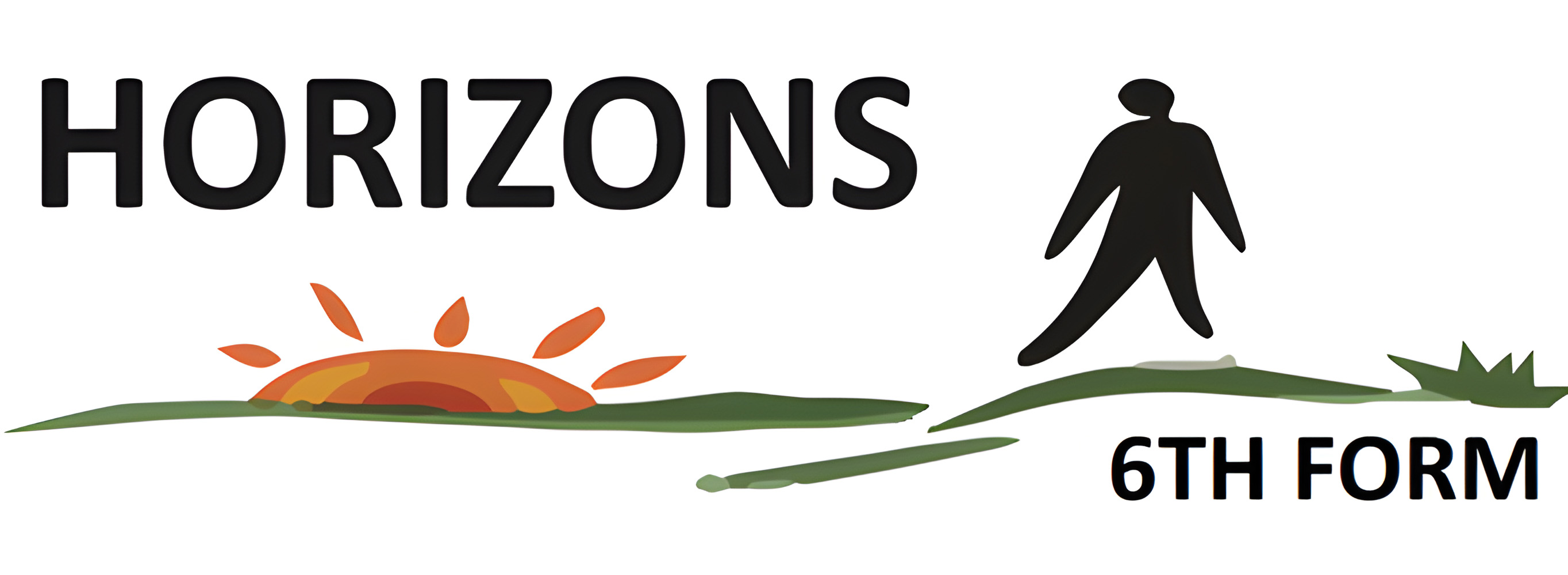We are also available for Scouts, Guides, Youth clubs etc visits.
Well, where do we begin!? Without the younger generations looking at technology and thinking “wow!”, “I wonder?”, or “what if?”, where would we be today? The obvious forefront of what we do is to preserve and maintain computing history. But why? One of the main reasons is... to educate and inspire!!!
Computing, the internet, and most things involving anything technological powered by electricity have evolved rapidly in such a short space of time which makes it all the more important to do our best to preserve, document and maintain it. As well as doing this for sheer nostalgia, we believe that understanding technology past helps younger generations shape technology future.
Let us show your group the history of computing, so that they can make the future...

As a registered charity that provides work experience for young adults with special educational needs (SEN), we have partnered with Horizons Sixth Form who are based just a few doors down from us.
Our school visits are run by one of our volunteers, together with teachers and students from Horizons. The Horizons students act a museum tour guides, which helps them improve their confidence and communication skills.
They have studied a bit about each room in the museum so that they can provide information about the exhibits to your pupils.
Each room also has accompanying worksheets, quizes, and educational materials. There is also a STEM workshop provided by a specialist volunteer on the top floor.

We currently provide school trips for:-
School trip visits are currently available on Thursdays only.
We offer two different itineraries:-
We can accomodate up to 45 people, including teachers/TA staff etc.
Large groups (more than 45) - If you have a group larger than 45 people you may want to split into multiple visits as we can't accomodate more than this at one time.
Small groups - If you have a small group (of say only 4 or 5 students) then we're more than happy to accomodate this but please note that as the museum only open during the week for school trips or private bookings and is closed otherwise. We provide exclusive use for each school trip so there are minimum fees to cover electricity of powering everything up etc. Please see our booking form for more details.
See a table below explaining all the rooms in the museum, what is in them, and the educational aspect.
You can also see video tours of each room on the rooms page and a map on the layout page.
| Room | What’s in it | Educational aspect |
| 70s/80s room |
Some of the oldest machines we have in the museum including machines like the BBC Micro & BBC Master (which were part of the BBC Education project in the 1980s), Amstrad machines, Commodore 64, Spectrum and others. About 10 usable machines with a variety of educational software and games on. |
A display with a history of computer media. Learn about how storage evolved from 8" floppy discs through to CDs, video, tapes and today's modern media. Worksheets/cribsheets specifically for this room. Our exhibits each have a write up next to them giving you the year the machine was made, the type of processor and memory it has, plus any significant historical information. |
| Japanese room |
Japanese video games consoles from the early 1980s onwards including Nintendo, Sega and Sony. 10 usable machines. |
9x A3 display boards in this room explaining the history of the exhibits, how Nintendo used clever marketing and adapted their products to rise above the Video game crash of 1983, and more. Worksheets/cribsheets specifically for this room. |
| British gaming history |
The UK has a really rich heritage of developing computer games! This room showcases a 20 year history of some of the most well known titles, which many never knew were developed in the UK! There are 13 usable machines in this room. |
Learn about how Britain is a pioneer in the computer gaming industry, and see how games evolved through the ages. Worksheets/cribsheets specifically for this room. |
| PC room and Apple room |
This is actually two rooms, but the Apple room is quite small so for the purpose of splitting pupils into groups we combine these rooms on their visit to the museum. There are about 15 usable machines between both rooms. |
In our PC room, see how Microsoft Windows evolved from the first version of Windows 1.0 in 1985, all the way through the ages to Windows 2.11, Windows 3.0, Windows 3.11, Windows 95 and Windows 98. In our Apple room, see how apple developed from basic machines like the Apple IIe, through to machines such as the iMac and and PowerMac G4 which were some of the first machines to run OSX (MacOS) which is what modern Macs run today. Worksheets/cribsheets specifically for this room. |
| STEM workshop room |
In this multi-use area of the museum one of our experienced volunteers will provide an STEM workshop to your pupils. |
See the STEM workshops section. |
On the top floor of our museum, one of our experienced volunteers will be providing your pupils with a STEM workshop.
We rotate which STEM workshops we are doing so that if you plan a return visit to the museum then you'll be able to do a different workshop for variety.
Up to 30 people (includes students AND members of staff / TA's etc)
£149
Up to 45 people (includes students AND members of staff / TA's etc)
£199
Parents etc are welcome to come too, but the number of parents is included in the numbers above. So if you would like to bring 25 students and 10 parents, then the group size would be 35. We can not exceed 45 total visitors (unless it's just one or two over).
Smaller group? You're welcome to bring smaller groups but please note our minimum school trip fee is £149 in order to cover the cost of powering up the 55 to 60 hands on exhibits. We can't do a cheaper rate if you only have half a dozen visitors.
The museum is situated on the 1st to 3rd floors of a very old shared use building which is accessed by stairs.
Unfortunately there is no wheelchair access as we do not have a lift.
Unisex toilets are available. There are no disabled toilets on-site.
Our unisex toilets have two enclosed cubicles; one for male and one for female.
Please fill out our booking form to check availability. Once availability confirmed we'll send you payment details.
If you have any queries, please READ EVERYTHING ON THIS PAGE FIRST before contacting as 99.9% of the questions we are emailed about school trips are covered on this page and as a volunteer run organisation we have limited resources to reply answering questions answered here.
| Q: How big is it? |
|
A: We have about 1,600 sqft, spread over 2.5 floors and 6 themed rooms. We usually have around 55 hands on working exhibits, plus a variety of display pieces. |
| Q: I only want to bring a small handful of pupils (say 5 or 10), can you offer a cheaper rate? |
|
A: Unfortunately not. Our main cost is electricity and when you visit we will make sure all the exhibits are turned on. We have approx 55 hands on exhibits so we have minimum charges in place to ensure we can cover our costs. We are volunteer based and a registered charity, so we do not make any money. |
| Q: Can I bring a group larger than 45? |
|
A: Yes but as the building has a limited capacity you would need to split these into sessions; eg 45 in the morning, and 45 in the afternoon. Or 45 one day, and 45 another day. |
| Q: Do you have catering or refreshment facilities? |
|
A: No we do not. However we are in the middle of Derby City Centre which has a large selection of eateries. |
| Q: Are there toilets? |
|
A: Yes we have toilets. They are unisex toilets with separate cubicles for male and female. |
| Q: Wheelchair access? |
|
A: Unfortunately not. We’d love to have access to wheelchairs but unfortunately the building is about 150 years old and this had not been factored in when they built it. We do not own the building so do not have the scope to put such access in. |
| Q: Public liability insurance / first aid / risk assessments / etc |
|
A: We have public liability insurance, and first aid kits in the building (as well as all the necessary fire safety signage, equipment, etc). We can provide you with a risk assessment template to use, however the end responsibility would lie with yourselves. Some of our volunteers are first aid trained, but not all of them, so if your educational establishment needs a first aider for visits to institutions then we recommend one of the staff you bring with you is first aid trained. |
| Q: Are your volunteers DBS checked? |
|
A: Yes, all of our adult volunteers are DBS checked with a basic DBS check. |
| Q: How do I get there? |
|
A: Please see our find us page. |
| Q: Coach and minibus parking? |
|
A: For information about coach parking, please see the Visit Derby coach parking page. For minibus parking, we would recommend using the Full Street outdoor car park which does not have any height restrictions. |
| Q: How do I book or check availability? |
|
A: Please fill out our booking form to check availability. Once availability confirmed we'll send you payment details. |